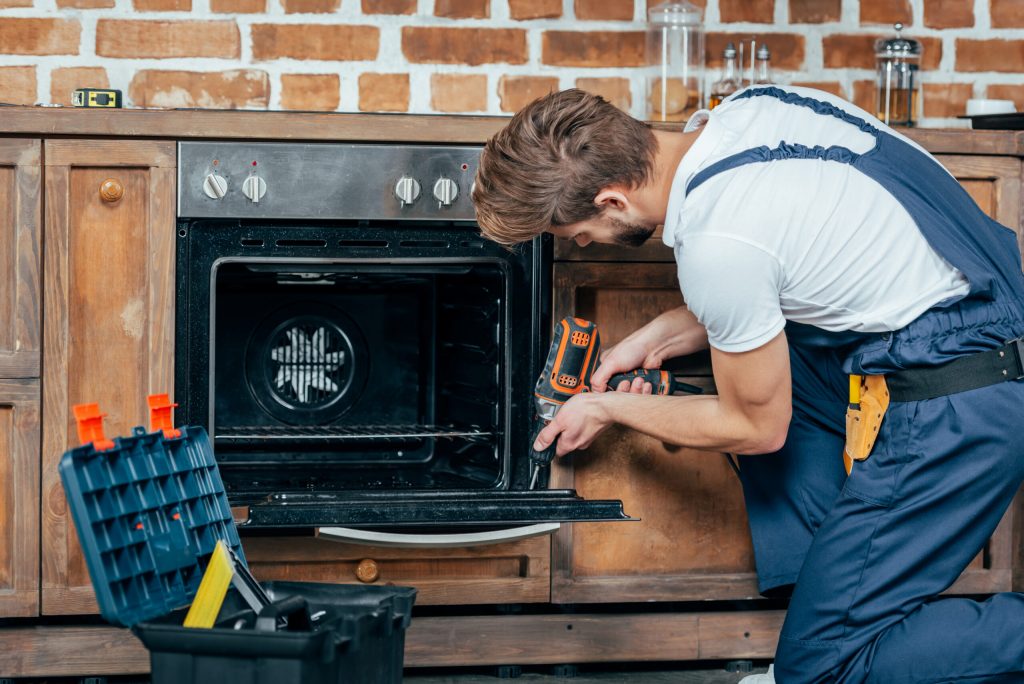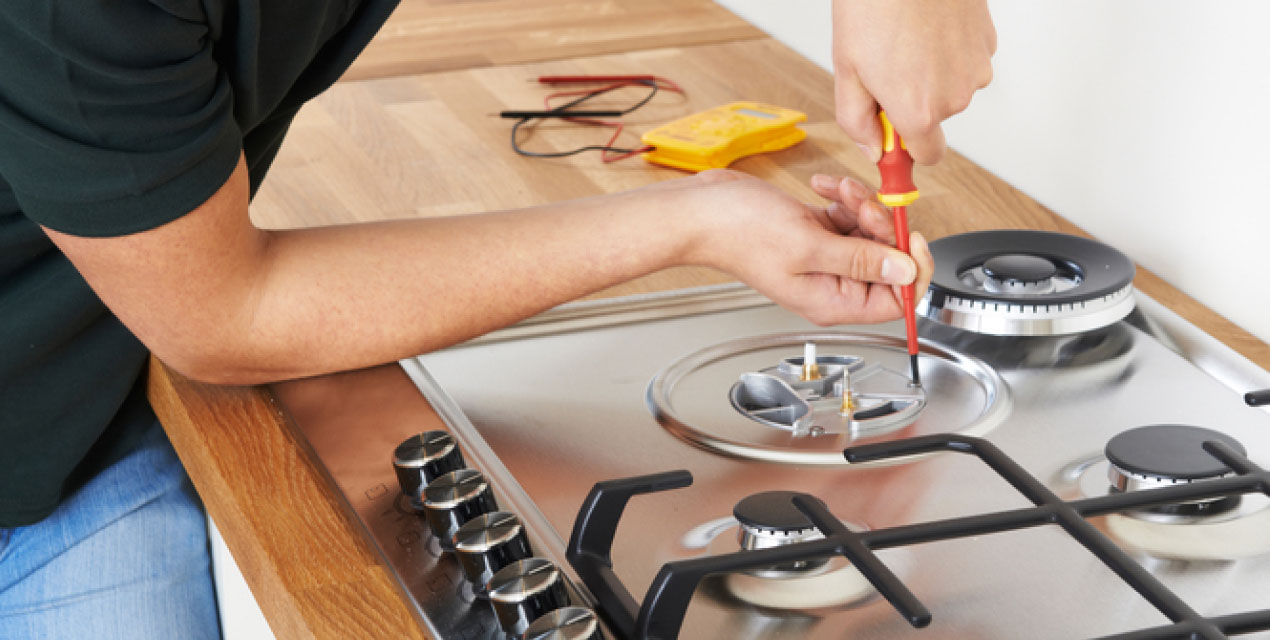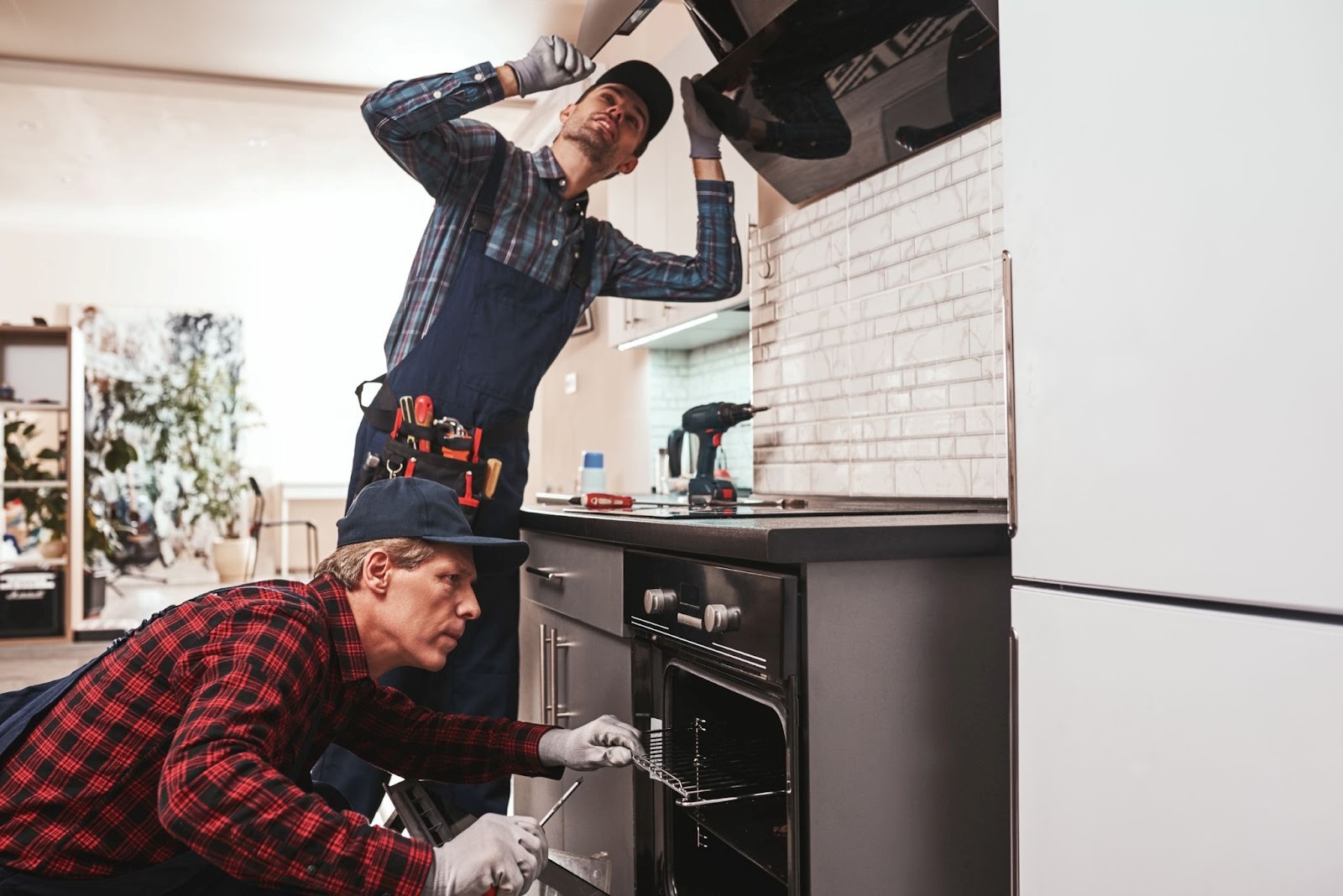A broken stove can feel like a disaster—especially when it stops working right before dinner. At that moment, you’re left with two options: should you fix it or buy a new one? This is a common question for homeowners, and the answer isn’t always simple.
Understanding the real difference between stove repair and replacement can help you save money in the long run. In this post, we’ll walk you through when it’s better to repair, when it makes more sense to replace, and what you should consider before making that decision.
Let’s get started!
How Old Is Your Stove?
The first thing to consider is the age of your appliance. Most stoves—whether gas or electric—last around 10 to 15 years. If your stove is less than 8 years old and has had few issues, repair is usually the smarter option. Many problems, like a faulty burner or control knob, can be fixed quickly and affordably.
On the other hand, if your stove is older and you’ve already had a few repairs done, replacement might save you more in the long term. Older units often use more energy and parts can become harder to find.
What’s the Problem—Minor or Major?
Not all stove problems are equal. Some issues are small and easy to fix—like a burner not lighting or a loose connection. Others, like wiring problems, failing thermostats, or broken oven doors, can be costly and time-consuming to fix.
If the problem is minor and doesn’t affect how your stove works overall, it’s a good candidate for stove repair. But if the issue is major or involves several parts failing at once, replacement might be more cost-effective.
Cost Comparison: Repair vs. Replacement
When it comes to money, every dollar counts. Most basic stove repair jobs cost between $100 to $300, depending on the part and labor. Common fixes like replacing burners, switches, or igniters are usually on the lower end of that range.
In contrast, a new stove can cost anywhere from $500 to $2,000 or more—plus delivery, installation, and possible haul-away fees for your old one. So, if your repair is going to cost more than half the price of a new appliance, experts generally recommend replacing it.
Energy Efficiency and Utility Costs
Older stoves tend to be less energy-efficient, especially older electric models. This means they can cost you more in monthly utility bills over time. New stoves often come with energy-saving features and better temperature control, which can help you save money every month.
So, if your older stove is working but driving up your energy bills, replacing it could lead to long-term savings—not just on repairs but on utilities, too.
How Often Do You Use Your Stove?
If you cook daily or love experimenting with new recipes, your stove probably works harder than average. In that case, it may be worth investing in a new one with modern features, better safety controls, and stronger performance.
However, if you only use it occasionally or rarely cook at home, a simple stove repair can extend its life without breaking the bank.
Availability of Replacement Parts
Some older or discontinued stove models may not have easily available replacement parts. If your technician struggles to find the right part, the repair process can be delayed—or even impossible.
Before deciding, check with your appliance technician to see if the parts are still made. If they’re hard to find or more expensive than expected, replacement may be your only real choice.
Is It Still Under Warranty?
If your stove is under warranty, that’s a game-changer. Most warranties cover parts and labor for a certain period, especially in the first few years. In this case, stove repair is not only cheaper—it might be completely free.
Always check your paperwork or contact the manufacturer before spending money on either option.
Environmental Impact: Think Green
Repairing your stove instead of tossing it in the landfill is a more eco-friendly option. The longer you can use a working appliance, the less waste ends up harming the environment.
If you’re eco-conscious, consider repairing before replacing—unless your old unit is extremely energy-inefficient.
Bottom Line: Which One Really Saves You More?
In most cases, stove repair saves you more money if:
-
The unit is under 8–10 years old
-
The problem is minor or isolated
-
Replacement parts are available and affordable
-
Your stove is still energy efficient
But if your stove is old, keeps breaking down, or requires a major repair, replacing it may be the smarter move—especially when factoring in energy savings and peace of mind.
FAQs: Stove Repair vs. Replacement
Q1: How do I know if my stove can be repaired?
If the stove powers on and the damage is limited to one or two parts, a professional can usually fix it. A technician can diagnose the problem and recommend the best solution.
Q2: Is it cheaper to repair or replace a gas stove?
Repair is often cheaper if the issue is minor. However, if your gas stove is older and has multiple issues, replacement may be more cost-effective in the long run.
Q3: Can I do stove repairs myself?
You can handle small tasks like cleaning burners or checking the power supply, but more complex issues—especially with gas or wiring—should be handled by professionals.
Q4: Will a new stove lower my energy bills?
Yes, modern stoves are built to use energy more efficiently. You may see a reduction in your utility bills over time.
Q5: How long should a stove typically last?
A good stove usually lasts 10 to 15 years, depending on how often it’s used and how well it’s maintained.
Final Thought: Don’t rush into buying a new stove until you’ve explored your repair options. A quick, affordable stove repair may be all you need to get back to cooking without the big price tag. But if your stove is nearing the end of its life, a new model might be a smart investment for your kitchen—and your wallet.



